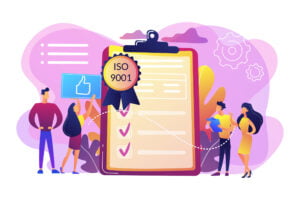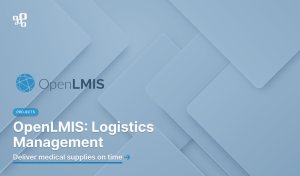Quality Assurance is a term that you’ve probably heard quite a few times. It’s present in the manufacturing industry, software development, and many other fields. While the term is familiar, the true meaning of QA is still rather blurred for a surprisingly large group of people. The value that QA brings into the project is often misunderstood and marginalized by both clients and sales representatives.
In this article, we will explore the reasons behind the underestimation of Quality Assurance, as well as discuss the benefits of including it in your product development process.
What actually is Quality Assurance?
Quality Assurance is responsible for making sure that your product meets the standards followed by your organization and fulfills all necessary requirements. It’s a set of processes that aim to improve not only the quality of your software but also the efficiency of the development.
QA acts as a long-term guarantee of the quality, since it is focused on proactive uncovering and identifying the source of defects, in order to lower the probability of the same issues appearing in the future. It’s designed to fix problems at their core and improve the whole development process.
Why does Quality Assurance keep getting neglected?

Even though QA is an essential part of the Software Development Life Cycle (SDLC), its role is still highly misunderstood, and often overlooked by both business owners and sales representatives. There are various reasons behind this.
Based on our experience with offering QA services, we’ve noticed that the problem consists of two main elements: the lack of SDLC knowledge on the client side, and the shallow understanding of specifics of QA work by the sales representatives.
QA from the client perspective
A client that seeks services of an IT company is most often not a technical person. While there is nothing wrong with this fact alone, it generates issues that can affect the quality of collaboration and, consequently, the project itself.
The common misconception among non-technical people is that development is the one and only essential part of creating software. Clients usually don’t understand the value brought to the project by roles other than the developer. This affects especially QA services, as the client perceives a feature completed by the developer as a finished product that requires no further care. This false and incomplete understanding of SDLC results not only in the bugged software but also in the repetition of the same mistakes in the development process again and again, making it more costly, time-consuming and inefficient.
QA from the sales representative perspective
The second part of the problem is the relatively low level of awareness on how exactly the QA contributes to the quality and efficiency of the project. This issue is mostly related to the sales representatives whose knowledge on QA is often based on assumptions. It leads to QA roles being frequently left out of the project, since the very selectors of solutions have no insight into the value and benefits of including a QA specialist in a project.
The lack of Quality Assurance costs you time, money, and your name

Being so often omitted, QA might seem to be just an optional addition to your project. However, in reality, it’s so much more than that. QA is responsible for increasing the effectiveness of your development process, and guards the quality of the final product. It serves as a guarantee that what you release meets all of the determined requirements and standards.
Including QA in the project comes with a handful of measurable benefits that certainly are worth considering:
Saving time
Research states that developers spend up to 50% time of their work on fixing bugs that could have been avoided, should an effective Quality Assurance practice be applied. It does make quite a lot of sense, if you think about it. Fixing bugs after the product is finished and already released comes with additional challenges. Sometimes one change in the code is followed by other unexpected issues that have to be quickly resolved, not to upset the users any further. All of these operations take a lot of precious time that could have been spent on developing new features or other products.
Saving money
In the same paper, we read that identifying and fixing issues after the software is released can be even 100 times more costly than doing it during the development process. It takes a lot of additional developers’ work that you need to pay for, while technically not gaining any new value, only fixing the flaws of the product initially presented to the users. The financial consequences can go even further, as sometimes the bugs are so critical that they make it impossible to use the product. In such cases, a company responsible for such a disastrous release often decides to compensate the users by offering them some benefits (i.e. access to their product free of charge). It’s financially catastrophic and takes a heavy toll on the reputation of a company.
Saving reputation
When speaking of reputation, it is quite straightforward. People don’t want to use bugged software. The more seriously flawed products you release, the less customers will put trust in your brand. Digital solutions market is a highly competitive one. If you don’t do all that it takes to deliver, others will. There are plenty of companies to choose from. Trust is a fragile thing, difficult to build, easy to break. Engaging a QA specialist in your project increases your chances of becoming a reliable solution provider.
Shining the light on the importance of QA

Needless to say, it is highly beneficial to have a Quality Assurance specialist on board. The overlaying reason for the negligence towards QA is the lack of proper education on the topic.
“In my opinion, mitigation of this problem lies in educating the client about SDLC and different personas taking their part in it,” says Łukasz Kołpak, Quality Assurance Lead at SolDevelo. “In terms of contribution from the QA side, my role is to co-author the description of QA services, benefits, selling points, etc. to provide an easily understandable outline of why testing services are a benefit to the client.”
To answer this misunderstanding towards QA, we’re providing informative meetings for sales representatives, introducing them to all the details of QA involvement in projects, as well as its benefits. Such meetings are designed to support sales representatives in their communication with clients. Years of experience taught us that this is the most effective method to establish a comfortable relationship and create a valuable dialogue with enough space for growth and knowledge exchange.
If you’re interested in finding out more about Quality Assurance and what it has to offer, we’re ready to meet you! Contact us for a free consultation.













